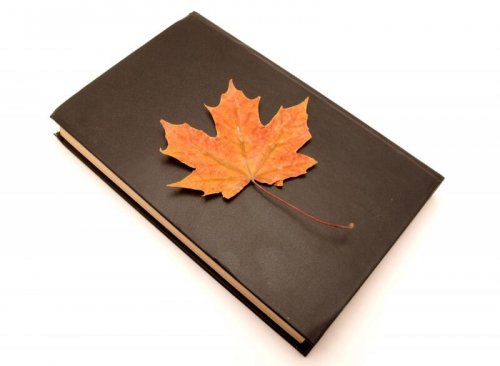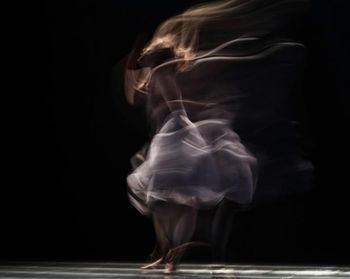
It is unlikely that there is a more “autumnal” poet in modern Russian poetry than Nikolai Kolychev. Not only because autumn is the time of his birth (October 24), but also because this is N. Kolychev's favorite time of year.
Even if we do not touch on the context in which the author uses autumn lines, but simply list them, we get an impressive list of bright, memorable images.
“Autumn is again telling fortunes on the leaves…”
“…Autumn is a trembling flute
In the narrow holes of drafts…”
“Autumn greedily drinks the color from the sky!..”
“…On the road, chilled by autumn,
I’ll break the thin ice with my foot…”
“…How pleasant the remnants of warmth
“To gain with every cell of our skin!..”
“Dear, tear-stained sky…
The cranes are calling… Where to?.. Where from?..»
“And the windows do not spare yellow tears,
Mourning the fading summer…”
“…The rains are coming – not the ones you expect,
And those who are tired of waiting for the end…”
“…Soon the connection between leaves and branches will be broken,
The rain will scatter tiny drops on the ground…”
“…And the branches are overgrown with dim light,
Where the thickets have cried out their leaves…”
You read these lines and understand that you have seen and felt the same thing dozens, hundreds of times – it is written so closely and clearly.
But with all the beauty and simplicity of these “autumn” lines, each of them also carries a deep meaning. Pictures of autumn help the author to convey love for the homeland, the meaning of life, the role of man in the modern world, his moods: love, sadness, despair, mental pain, pain for a destroyed country, a devastated village, loneliness… In “autumn” poems N. Kolychev rises to philosophical generalizations, understanding the world and his role in this world.
In the poems of Nikolai Kolychev we find juicy pictures of different periods of autumn.
And the earliest:
It smelled like mushrooms… Like sweet rot…
Oil!.. Medyn!..
The nights are ripe! Overripe –
To blackness!
And the windows through the thick soot
Flowed to the ground.
It seemed like they were generously spreading oil
For black bread…
And the latest:
The canvas of the sky has faded, burnt out, become dull.
The world was plunged into the mystery of semi-darkness.
The first snow merged with the last rain,
Celebrating winter's birthday.
The poet sincerely and deeply loves his homeland and conveys this feeling, including in his “autumn” lines:
…In the consumption of the wind the leaves will ache,
But the whistling of branches and the creaking of roots
I will never stop loving you!
In illness, in death
What is familiar is even more familiar.
You can't tear the curse out of me,
With You – to live and to die.
Autumn leaf crucifixion
To burn on the tree of the Motherland.
For the poet, his native nature and his native country merge into one. He cannot imagine life without both of them.
In the poetry of Nikolai Kolychev, nature – and autumn in particular – is “humanized”, it experiences and goes through the same things as any of us: “the thickets have cried out their leaves”, “the delirium of leaf fall is dying out”, “again autumn is guessing on the leaves”, autumn greedily “drinks light from the sky”, “a cluster of distant rowan will seem like a bite on the lip”, “the wind opens the cold heavenly lips with a mournful prayer”, “how the rowan bends! Probably something hurts”, “the glades cried with berries, saying goodbye to summer”, “in the consumption of the wind the leaves will ache”…
The autumn pictures convey the poet's mood. They intensify the sad, heavy feelings in the poem, which shows the current plight of Russia, flying past the train windows:
…There is my native country outside the window.
Gallery of sad paintings.
Has joy faded from the earth?
Or is it just that summer has passed?
Watercolors of groves and fields
Crying behind the cold glass…
And they give hope to the tired, the desperate, the exhausted:
…It's not time for leaves to fall yet,
The snow is creaking.
No need to rush, no need
Neither life nor death.
Or they convey deep despair:
…The light has cooled. And the color has been sucked out of the sky.
And the spirit of pre-winter chills people.
The whole world has sung and sung to the point of hoarseness,
And voiceless, like a song on a weekday.
How empty! Autumn has cried out its feelings.
My eyes are glassy and empty.
It’s not the world that has become hoarse, but I have become voiceless!
It’s not the world that has grown cold, but I have become hateful to it!..
And sometimes joy mixed with sadness – because the favorite season is leaving:
Again, under the tearful sky, they are spread out
Sad rains all over Russia.
And I wander, from the last yellow leaves
Kissing the raindrops…
They emphasize the tenderness and warmth of the beloved woman:
Red drops freeze on the rowan trees,
A dove gets wet behind the window panes.
You probably have gentle hands,
You can even see how warm they are.
And in the eyes there are barely noticeable sparkles,
And my eyes are warmed by them.
Yes, you are all – incorrigibly summery,
It's hard to believe it's even autumn outside.
The poet feels himself, like any other person, to be a part of nature:
…The snows of my mistakes are falling
On the foliage of unripe merits…
Human old age is perceived by the poet as the autumn of life, whether he is talking about late love:
…The tired soul is guarded
Every ray of autumn warmth…
or about an old man, waiting in vain for his relatives with every passing train:
…On his autumn face
Sorrow devoured the apples of the cheeks…
For the poet, who lived in the village for a long time, autumn is the time when the village “dies”:
I can't stand it anymore!
Once again autumn showers the soul with sadness.
And I really want to give up everything,
And drink and cry, drink and sing again…
Why? The reason is obvious – it is “a silence ready to explode” because
…The evening is already near, and columns of smoke
They are in a hurry to indicate living warmth,
And you can immediately see where the houses are, where the summer houses are…
And there are many more summer cottages than houses…
The poet understands that the summer village life was “boiling in make-believe”:
…They'll take out the last potatoes,
And death called Winter will come…
He will be left with homeless cats and homeless dogs, abandoned by their temporary owners – now no longer needed.
For Nikolai Kolychev, autumn is also the time when villagers slaughter their pets – the favorites they have cherished and pampered all year long. Nikolai Kolychev was the first to raise this topic in poetry. In these poems, autumn nature is especially bitter:
…A rare rustle in the branches. The delirium of falling leaves fades,
Scattering with a hissing, ominous prophecy.
Ah, I know, I know what I have to do!
But I don't want to. Well, by God, I don't want to…
That is why the poet, who knows the village and the villagers well, shows so truthfully the peasant who wants a better life for himself and his children, but who has no opportunity to change anything in his fate. And the pictures of autumn again help the author in this:
The sky is grey, the sky is sad.
The meadow has withered and the forest is frightened.
The swans and geese are crying
And they flow across the sky to the south…
Wishing with all his heart to escape his hopeless life, the village man tries in vain to fly after the cranes “flowing” to the south.
The poet identifies autumn with a woman, whose greater part of life has already passed. In the same way, “…the earth rages with all its flesh, flowing with autumn color”:
…Powerless to save myself…
By the fire of a golden fit
She is capable of igniting,
And burn any lover.
Slave – to give oneself over to power,
And, having laughed, tomorrow quit…
It contains everything – love, fear, and passion,
And sorrow, and pity… This is Autumn…
But despite all the sorrows and difficult experiences, Kolychev loves this time of year; for a poet, it is optimistic. “Autumn is my spring,” he writes, “I have completely grown into the pre-winter.”
…Let the hope of the foliage tremble,
Connection with people is broken…
I accept this life too,
I will praise this world too.
The autumn theme in Nikolay Kolychev's works is inexhaustible. To fully reveal it, a candidate's or even a doctoral dissertation is required. This does not mean that the poet writes only about autumn, but autumn is one of the most important components of his work.





